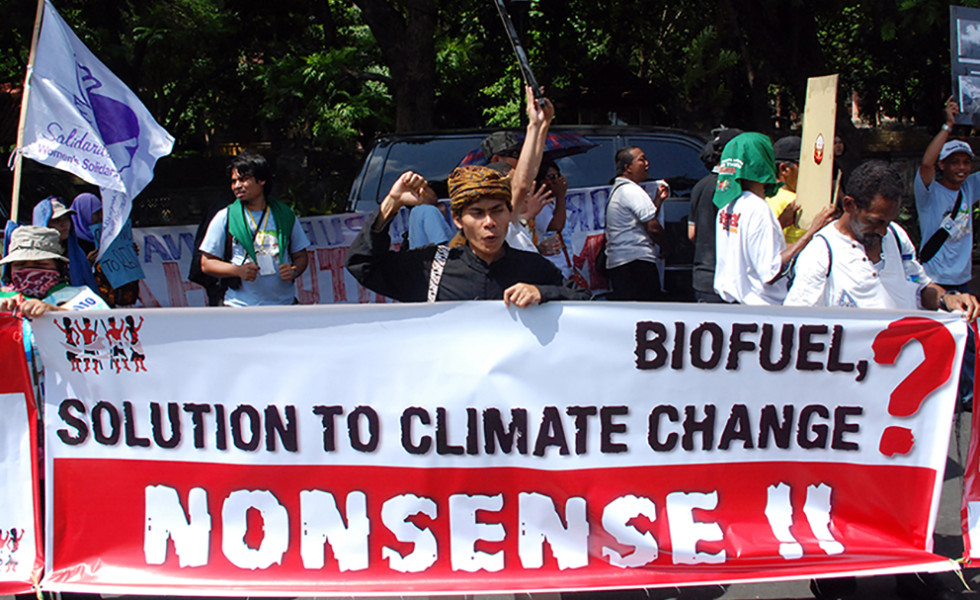An investigation by Hearst Newspapers shows that little oversight by agencies in California of experimental field trials of GMO’s hidden along California’s Central Coast is putting the public and the environment at risk. The company conducting the tests, Applied Biotechnology, is founded and run by John A. Howard, who “previously funded another company that was permanently banned from trials of genetically modified organisms – GMOs – after creating such contaminated messes in the Midwest that a half-million bushels of soybeans and more than 150 acres of corn had to be destroyed.”

Worker Javier Alcantar tends to corn crops at the Monsanto Co. test field in Woodland, California, U.S., on Friday, Aug. 10, 2012. Monsanto Co., an American multinational agricultural biotechnology corporation, is the world’s leading producer of the herbicide glyphosate and the largest producer of genetically engineered (GE) seed. Photo: Noah Berger, Bloomberg
According to an article published yesterday (September 8, 2014) in the SFGate, the online sister publication of the San Francisco Chronicle:
The advent of GMOs has spawned global debate and protest over issues of consumer safety and the uncertain effects of altered genes on the environment.
Yes it has–and the opposition to the development of unsafe GMO’s is just beginning to build!
GMO experiments receive questionable oversight
By Bill Bill Lambrecht, San Francisco Gate. September 8, 2014.Washington — At a secret location among the vineyards of California’s Central Coast, a plot of genetically engineered corn is producing proteins for industrial and pharmaceutical uses, including an experimental vaccine for hepatitis B.
The altered corn is growing with federal approval 100 feet from a steelhead stream in San Luis Obispo County, in designated critical habitat for the threatened California red-legged frog. Agriculture Department inspectors have reported two “incidents” at the site, including conventional corn sprouting in a 50-foot fallow zone, but the findings did not rise to the level of a fine or even to a formal notice of noncompliance for the company that planted it, Applied Biotechnology Institute Inc.
Details of Applied Biotechnology’s inspections and hundreds of other field trials with genetically modified plants were obtained by Hearst Newspapers under Freedom of Information laws. The inspection reports and other Agriculture Department records present a picture of vast, swiftly expanding outdoor experimentation and industry-friendly oversight of those experiments.





